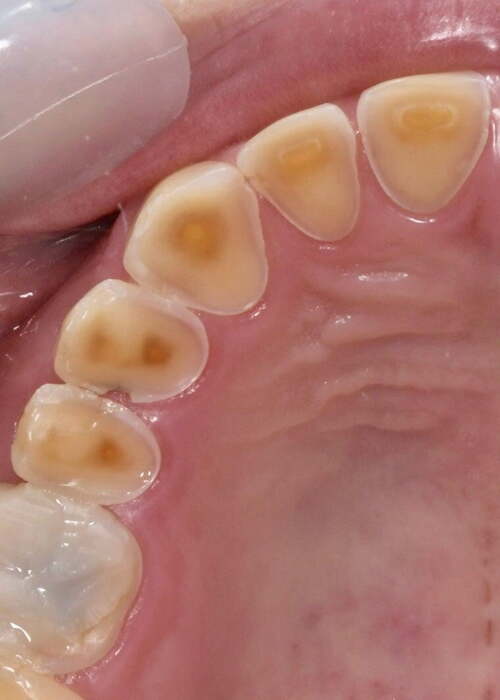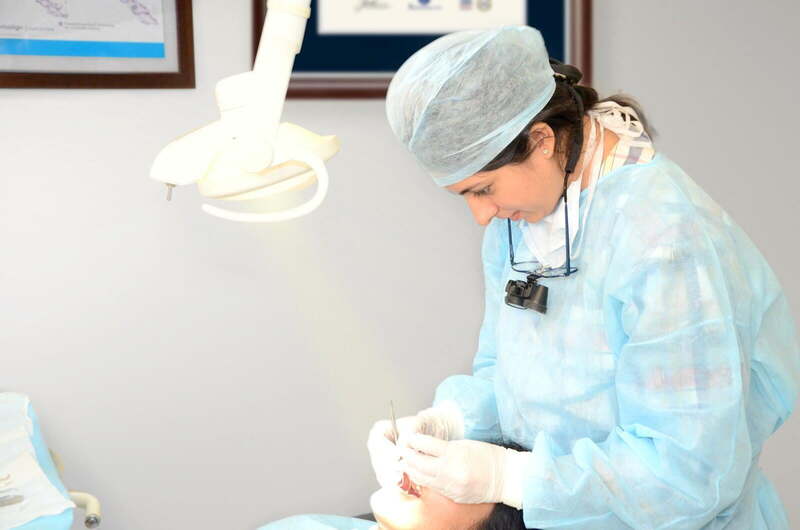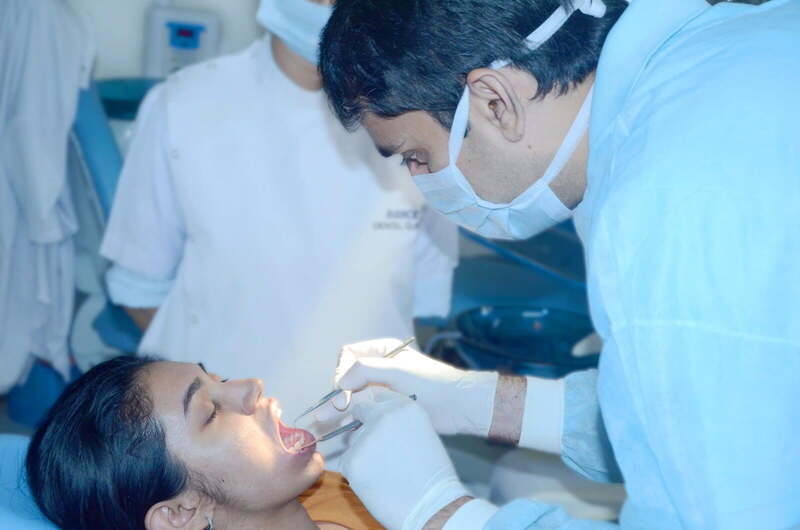Are you noticing tooth wear due to Tooth-to-Tooth Contact?It could be because of a Bruxism!
Bruxism is a para-functional condition that leads to excessive tooth grinding or Jaw Clenching. It is prevalent in 8-31% of the general population and is most often ignored. It can be treated with help of Night Guard or Occlusal Guard and with some Home Remedies. If no treatment is done, you may lose the whole tooth structure and jaw structure can collapse. Bruxism is most commonly nocturnal in nature- one that occurs during sleep and caused due involvement of multiple factors.
Signs and symptoms:
- Grinding of teeth noise during sleep, sometimes detected by companions.
- Restricted Mouth-opening or frequent cheek biting
- Clicking of Jaw Joints
- Frequent Headaches, Pain that radiates to forehead or feeling of fatigue of jaw muscles
- Tooth Wear that can be accompanied by tooth fractures or failure of Restorations or increased Tooth Sensitivity

Risk Factors:

Family Bruxism History
If you've had bruxism or teeth clenching history in the family, you're more likely to develop it.
Malocclusion
Discrepancy in your biting jaw positions can make you more prone to Attrition of teeth problems also known as Bruxism. A defective occlusal relationship or contact of a new restoration could also stimulate night clenching.
Stress
Stress, depression, anxiety and lifestyle related issues have been associated by researchers with teeth wearing facets. Emotional Stress and anxiety have been found as main triggering factors for bruxism. Stressful periods such as examinations, family, marriage, divorce, or job relocation have been suggested to intensify bruxism (teeth grinding) or teeth clenching at night. Children with greater level of anxiety, people aged above 50 and above who are single, Individuals who have high level of education, Work-related stress and irregular work shifts may also be involved in sleep bruxism. Some studies suggest that suppressed anger or frustration can also contribute to teeth clenching. Reduce your stress and anxiety levels for few weeks. The following tips can help-
- Sleep well for 6-8 hours
- Drink plenty of water and keep yourself well hydrated.
Medications and Possible Associations
Some Medications such as dopamine or tricyclic antidepressants are known to trigger Sleep Bruxism. Several medical conditions such as Parkinson's disease, Epilepsy and Down's Syndrome are also associated with Teeth Clenching and wearing of tooth structure.

Treatment for Bruxism
It is always advised to consult your dentist for the long-term solution and proper diagnosis of the Bruxism. Treatment of bruxism focuses on reducing the occlusal forces, symptoms, particularly pain and hypersensitivity of tooth. Meanwhile the treatment for the Bruxism may include:
- Fabrication of the Night Guard. Wearing a protective sheath or night guard also known as occlusal guard can prevent further damage to the teeth. Night Guard will help your muscles and jaw joints to relax at night which will remove Bruxism.
- Bite adjustment. Selective grinding or restoration of teeth or Crown & Bridge treatment may be done to remove any discrepancy in the jaw position to provide immediate relief.
- Medication. If the symptoms are sever our doctors may prescribe you with some muscle relaxants.
It is best advised to visit our office for Bruxism, but some home remedies can help ease the signs and symptoms.
Home Remedies
Herbal Tea instead of coffee or other caffeinated beverages is a natural remedy to reduce stress and relax your nervous system which will reduce your symptoms of grinding at sleep. Opting for herbal tea is a natural way to relax body and keep mind calm. Try a cup of warm green tea to reduce the likelihood clenching your teeth.
Warm Salt water rinsing can help relax your tense muscles and increase the blood circulation. It can also flush out any stuck food particles and reduce pain and sensitivity.
Turmeric Milk can help treat bruxism. The turmeric has strong anti-inflammatory properties that may reduce pain and aid recovery of jaw muscles. Amino Acids in milk relax your nervous system and promote sound sleep. To alter the taste, you can add honey for sweetness and drink a glass before bedtime for relief.
Exercise, Meditation and Yoga can relax your mind for sometime in silence. Mental Health issues, anxiety and stress are the reasons for Bruxism. Try to empty your mind, meditate and sit for sometime in silence.
















